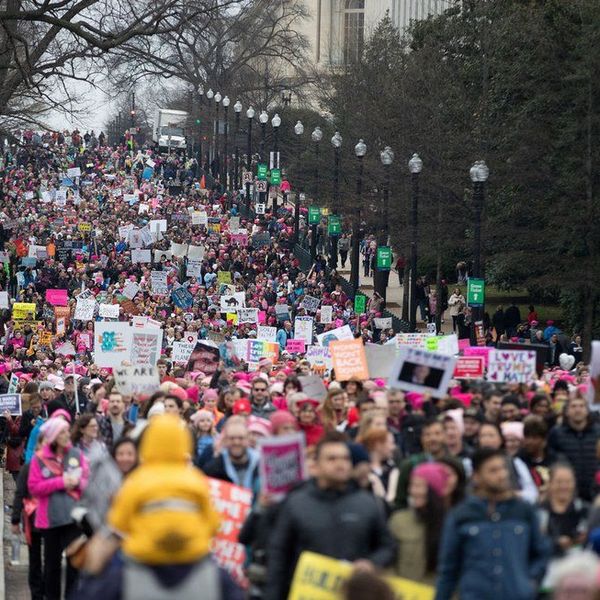The sign read BRAINTREE, 13 MINUTES in large, orange letters. A wave of panic overcame me; I couldn’t wait thirteen minutes for the next train! I was later than I wanted to be as is. I took the stairs two at a time, rushing towards the crowded compartment.
I crossed the platform, weaving in and out of throngs of bodies. When I stepped into the compartment, I was out of breath. “Is this going towards Braintree?” I asked, looking to the man across from me for an answer. Although I have never been good at guessing age, I would place him in his late thirties or forties. He stood behind a bike, and I had interrupted him in the middle of a rant involving a stolen skateboard. The man wore a Duxbury Wrestling hat; he adjusted it before reassuring me that I was on the right train.
I breathed a sigh of relief, thinking, Great. I can relax now. I dropped the reusable bag I was carrying full of clothes and looked at the time: it was just after three. If all went well, I’d be back in Hingham before four.
I was so lost in my thoughts of returning home that I didn’t hear him the first time he asked me, “You a skier?” It took him repeating it a second time, louder and slower, for me to realize the man with the hat was talking to me. “Are you a skier?”
“Yes.” I answered; I had grown up in Central Massachusetts, just fifteen minutes from Wachusett Mountain. As a kid, I loved to ski. I’d go up twice a week in middle school with the ski club, and sometimes more with my dad or my friends. I wasn’t sure why exactly he was asking, but I figured he was probably making harmless conversation.
“Yeah, you look like it.” He announced to the train, which was pulling to a stop in Government Center. The compartment emptied somewhat: there was a seat available a row down. I wasn’t exactly in the mood for a conversation, so I began edging towards it, away from the man and his bike and him telling me that I looked like I skied.
I remember, for a split second, wondering what that meant, that I looked like a skier. What was my giveaway? I hadn’t been to a mountain in almost two years. Was it the grey sweater I was wearing from Target? The silver ring my boyfriend gave me for our anniversary? The faux leather grey backpack slung over my shoulder?
Even though I didn’t ask, he began to inform me, “Yeah, like I said, I thought you must be a skier. You have the physique of one, I think, under your clothes. I mean, couldn’t really be sure with that sweater on, but I thought you had the shape of a skier.”
Unsure of how to reply to that, I edged away from him in the compartment, taking the empty seat. I texted my boyfriend what had happened, asking if I radiated some specific “I ski” vibe. I was trying to make light of the situation, for my sake more than his.
I spent the next couple minutes trying not to be uncomfortable. I was struggling with embarrassment, wondering why this grown man had found it acceptable to comment on my body shape—or, the body shape he assumed I had, had I not been wearing that pesky bulky sweater that obscured my frame—in a crowded train of people.
I was experiencing the same familiar discomfort I felt when my mom visited me at college and a man catcalled me on the street. It was that same feeling of shame. Although there is no convenient or appropriate time to ever receive a catcall, I remember wishing it hadn’t happened in front of my mom. Now, I was wishing it hadn’t happened in a compartment full of strangers.
I didn’t respond to him. I unlocked my phone and glued my eyes to the screen. I didn’t say anything when the man next to me began to doze off and leaned on me, even though I wanted to. I didn’t say anything at all.
I’m not sure how the conversation arose, but the man with the bike began discussing the recent election results with a few other men in their mid-fifties and sixties seated in the aisle opposite him.
They were all rejoicing in how “miraculous” it was that Trump was elected. I remember thinking, Miraculous? That’s not what I’d call it. I listened to them praise Mike Pence as a “godly man.” I listened to them talk about how America could soon become great again, and how they never expected this to happen. I was thinking, Neither did I.
One man mentioned how his wife had voted for Hillary Clinton, which elected a sea of boos from the others. He laughed in a good-natured way and held up his hands defensively. “I know, I know, but what am I going to do? She got on board with the whole ‘woman’ thing, but she didn’t go crazy when it didn’t go her way like these protesters and all that—you know, she’s very civil.”
This lead the conversation to how this presidency will bring a time where “it’ll be okay to hold a door for women again without them getting all mad that they could hold the door themselves.” The men were talking about how this would restore an era of chivalry, how they wouldn’t need to ask for permission for “every little thing”, how—and I quote —“women can finally act like they like a man in control, except in the kitchen.” They all laughed, too, because apparently they missed the memo that those classic “get in the kitchen” jokes are no longer funny nor is the blatant sexism entailed acceptable.
I started to feel unsafe as I sat there on the T. I had begun to feel like my seat belonged to the man next to me, who had fallen asleep and kept leaning on my shoulder. I was beginning to feel claustrophobic, like the compartment was getting smaller and smaller, as I remembered the stories I’ve been reading—stories about how men have been groping woman after calling out “grab her by the p****.”
I wanted to speak up. I wanted to be an advocate for what I believe in, for what I’ve attended protests for, for what I voted for, but I was outnumbered by this group. I felt so small in comparison to them, who stood tall and unafraid.
Fifteen minutes felt like a small lifetime. Slowly, the group dispersed, each getting off at their respective stop. There were three men left. They continued making jeers at “crooked Hillary” until one of the men rose and began approaching the doorway. The train hadn’t stopped yet: we continued onward, towards the next platform.
The man, who was probably sixty, approached a young girl who stood by the door. Her attention was on her phone. She was minding her own business, unlike this man. She stood in a place where there was room for her in a crowded compartment. The man began to speak to her. “Hey, phone girl.” He called out. She did not look up, as she probably was not used to be addressed as “phone girl.”
He took a step closer, seeing he had not obtained her full attention. “Hey, hermana? Phone girl?” She glanced up, fully aware that this man, who was becoming increasingly aggressive in tone, was speaking to her. He took another step—too close for comfort. “This is my stop here, so you’re going to have to get out the way so I can get off the train, phone girl.” As he said this, the train began to slow, but we hadn't stopped yet.
She said nothing and returned her attention to her phone. I wanted to speak out, but my voice was gone; I was horrified, because I felt as trapped as this girl was. I was on the train without a single friend or ally. I was scared. I was uncomfortable. I felt unsafe.
The girl looked unbothered, but I wondered if she really was. I wondered how many times someone had spoken to her that way. I thought the interaction was over, until the man pats her on the head and repeats himself—that this is his stop, that he has to get off here, that she will need to move. She looked at him, her phone held out between them as a barrier.
I could feel people looking at me, at my gaping mouth that could not hide the anger I was feeling. I had never been good at hiding my emotions, and I am sure that the redness of my face indicated how horrified I was. This was when I open my mouth, calling out to the man who has treated that woman like she is half the person he was. “Excuse me?!”
He didn't hear me in the commotion: the train squealed to a stop and the doors opened. The man motioned for her to move. I cannot see them for a minute as other passengers depart, but when the train has cleared, I see he’s forced her off the train so he can exit. She stood patiently outside the door, waiting for her turn to board the train again.
“Do you know him? Are you okay?” I asked her, the words tumbling out of my mouth in one sentence. I was wishing I had said more, wishing I had done more. A girl sitting opposite me wearing a blue sweater encourages the girl with the phone to sit beside her. The girl with the blue sweater and I exchange a look; suddenly, I do not feel so afraid.
“I’m okay.” She had said, and after a moment, she looked back to her phone.
Having been so focused on the interaction between the girl with the phone and man, I had not seen the man with the bike depart. As I looked around the train, I did, however, see the lone Trump supporter standing to the side, watching us uncomfortably.
I wanted to ask him, “Did you see that? Were you paying attention?” I wanted to say, “Don’t you have daughters? Nieces? Sisters? Female coworkers, or friends? Do you have a wife? Do you think of your mother? Don’t you seem them when you watch a man do something like that to a woman?” I wanted to ask him, but I didn't.
When the train arrived in Braintree, I felt exhausted. I left the compartment with a guarded posture and a lingering sense of fear—a fear that hasn’t left me since that afternoon, and I am sure won’t leave me for a very, very long time.




















